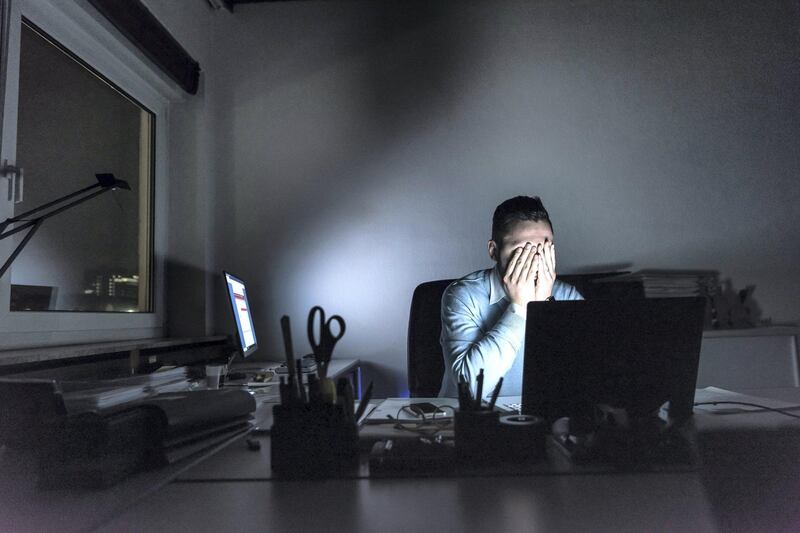"I'm burnt out; I'm spent; I'm done." These are phrases many of us throw around like confetti, especially after a stressful day at work. Typically though, after a break from the office, we are ready to go back to work revitalised the next day. But sometimes the fatigue does not fade and workplace stress begins to take its toll. Burn-out can lead to depression, bitterness, fatigue or a loss of our sense of pleasure and purpose.
The term burn-out was coined in 1974 by psychologist Herbert Freudenberger. He defined it as a "state of mental and physical exhaustion caused by one's professional life". Four decades later, the term is more relevant than ever. The World Health Organisation, which sets the global standard for diagnostic health information, included an expanded definition of "burn-out" in its disease classification last month, where it sits alongside other health issues related to work, including exposure to radiation and toxic agents. WHO's International Classification of Diseases describes it as an "occupational phenomenon" arising from "chronic workplace stress that has not been successfully managed" and lists three main symptoms: fatigue or exhaustion, feelings of negativity or cynicism about one's job, and reduced professional efficacy.
The idea of reduced competence becomes particularly problematic in industries where poor performance could prove dangerous or even catastrophic. In aviation and healthcare, for instance, burn-out can cost lives, significantly increasing the likelihood of human error.
A study published in 2018 in the journal Mayo Clinic Proceedings found that among 6,586 US doctors, those with at least one primary symptom of burn-out were more than twice as likely to have reported a major medical error within the past three months. Similarly, research within the aviation sector has identified airline pilot burn-out as a significant threat to flight safety.
Burn-out is also highly prevalent among health care workers and other emotionally demanding jobs. A nationwide study undertaken in the UAE, which was published last year in the Journal of Family Medicine and Primary Care, reported that 70 per cent of those assessed were experiencing at least one major symptom of burn-out.
This is a worrying trend that goes way beyond health care. Burn-out can impact any industry, with negative consequences for health and wellbeing.
Unfortunately, to date, most research has focused on defining, measuring and exploring what causes it. Far less effort has been spent on how to treat or prevent it, leaving those suffering from it often feeling isolated and helpless. In the most extreme cases, this can drive people to take their own lives. In Japan, for example, they have a word for it – karoshi – which means death by overwork. In 2013, 31-year-old journalist Miwa Sado worked 159 hours of overtime in one month before dying of heart failure. Two years later, a 24-year-old advertising employee jumped to her death after working more than 100 hours in a month.
This is the furthest end of the spectrum. Most of us just become embittered or feel demotivated. Imagine the impact burn-out has on teachers, for example. While it might not be as dangerous as making an error while flying a plane or carrying out surgery, becoming incrementally demoralised and exhausted can have a long-term negative impact on the pupils under their watch.
But what can we do to make sure those who are looking out for us remain safe and healthy? Prevention is always preferable to cure so identifying ways to prevent burn-out is key.
As a preventive measure, it is always helpful to learn how to manage workplace stress more successfully. We cannot always reduce the frequency or intensity of stress in our lives but what we can do is manage our response to these episodes. This idea of learning new ways to relate to, and manage, stress is at the heart of interventions such as mindfulness-based stress reduction.
That said, preventive measures and stress management can only do so much, if working conditions remain unhealthy. The source of the problem is often related to overwork and a stressful environment, which cannot be sustained in the long-term. That is why managers and executives have a considerable part to play in ensuring that employees's health is not compromised in pursuit of profit or productivity. Burn-out is nothing new –- but its reframing as an occupational hazard provides us with yet another compelling reason to promote workplace wellbeing.
Justin Thomas is a professor of psychology at Zayed University





